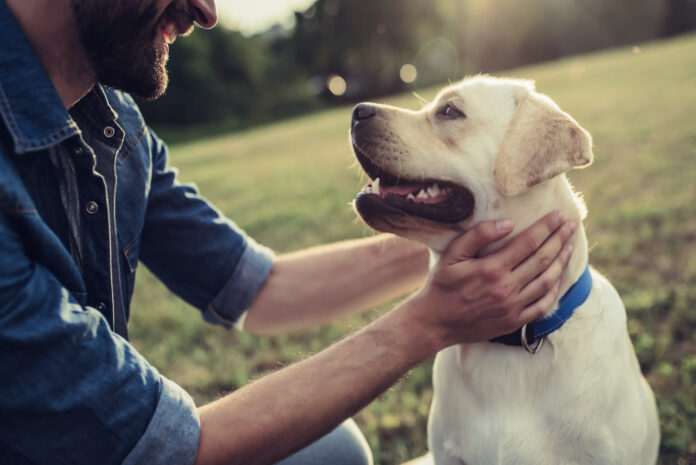The past couple of years has caused a lot of stress for people. But many don’t realize that their dog may be experiencing stress and anxiety, too.
One stress comes from a lack of appropriate, early socialization with other dogs, which can result in societies like ours where people are encouraged — or even forced — to avoid other people and even stay home. It shouldn’t surprise any dog owner these days if their young pet — or even old vet — exhibits an unexpected fear and anxiety around other dogs.
Many people also find themselves moving due to jobs or leaving certain cities or states in favor of freer, safer or more family-friendly areas of the country. Dogs have to deal with the stress of moving as well. New environments can be as destabilizing to them as they are to you.
Even in normal times, dogs face stresses we may not recognize. Common dog stress is caused by loud noises around the Fourth of July. The introduction of a new pet or infant in the home can have a similar effect. The most common anxiety in dogs we see at our clinic is separation anxiety. When you leave, some dogs may become very vocal and upset. Some respond by soiling the house, constantly pacing or becoming destructive. As many pet owners can testify, stressed-out dogs who don’t like to be alone can greatly damage property and injure themselves.
All fear and anxiety in dogs can cause physiological or even physical damage. It may even shorten their lifespans or make them difficult to manage as they lash out and bite.
The main strategy for an anxious pet is predictability and security. Your dog should learn that calm, patient behavior is rewarded. If the dog gets very excited when you arrive home, it is best to make only a brief acknowledgment, then give it time to calm down before having further interaction.
We counsel removing triggers of unwanted behaviors. If possible, re-train your dog by using graduated departures. Leave for a short time, then gradually increase your time away. Also, try to avoid departure cues such as jingling your keys or getting your coat every time you head for the door.
Believe it or not, there are many over-the-counter supplements that may help decrease your dog’s stress. They include ingredients such as L-theanine, magnolia officinalis, phellodendron amurense, alpha-lactalbumin, melatonin, tryptophan, alpha-casozepine, and Soureoubea Spp. Giving supplements that help cognitive function may also help, especially in older pets, including S-adenosylmethionine(SAMe), phosphatidylserine, pyridoxine, vitamin E, ginkgo biloba extract, and resveratrol. Omega-3 fatty acids and apoaequorin may also help in dogs with cognitive decline. Some pets may benefit from pheromones, which come as a spray, a diffuser (like a plug-in air freshener) or a collar.
Creating a stable, predictable and safe environment can calm many dogs. Daily walks, playtime and training should be on any pet owner’s routine. Since many things may cause changes in your pet’s behavior, you should always consult your veterinarian first. There are no lab tests for anxiety in pets, but we usually can rule out other issues first. In some cases, your veterinarian may prescribe anti-anxiety medication that can be used along with training.
As we decrease our own stress, it’s helpful to remember that dogs have feelings, too, and they rely on us to help them live more stress-free lives. These tips should help them — and you — experience greater peace.

